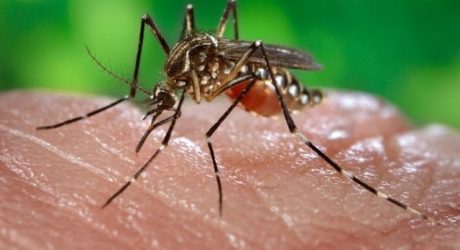A pair of studies published last week focused on Zika’s complex relationship with dengue, which is closely related and spread by the same Aedes mosquito as Zika.
In paper published in Nature Immunology on Thursday, researchers found that most dengue antibodies helped Zika viruses proliferate and invade cells.
That suggests that people previously infected with dengue, whose antibodies against dengue remain in their blood, might have a more severe reaction to Zika, according to Gavin Screaton, chair of medicine at Imperial College London.
But although these results support similar findings from Florida Gulf Coast University and the University of Pittsburgh Center for Vaccine Research, not everyone is convinced that past dengue infections can make Zika cases more severe.
According to Anthony Fauci, director of the National Institute of Allergy and Infectious Diseases, while dengue antibodies may exacerbate Zika infections in the lab, there’s no evidence that this happens in the real world.
Zika was first documented in 1947, but it was never known to cause birth defects until last year when Brazil experienced an alarming increase in microcephaly, a condition in which babies are born with abnormally small heads and impaired brain development.
Brazil has reported 1,660 cases of microcephaly, about 10 times more than usual, according to the World Health Organization (WHO).
Microcephaly linked to Zika has been reported in 11 other countries or territories, including Puerto Rico, Martinique, Panama, El Salvador, Colombia, the Marshall Islands, French Polynesia and Cape Verde.
These locations have different varieties of dengue viruses, and it is said to be possible that some varieties of the virus are more likely to be associated with Zika complications than others.
Scientists have looked at a number of possible explanations for Zika’s explosive growth, said Peter Hotez, dean of the National School of Tropical Medicine at Baylor College of Medicine in Houston, Texas.
It is possible that Zika’s spread has been aided by environmental factors, such as climate change, poverty and urbanization. It is also possible that the virus has mutated.
In order to understand whether dengue antibodies exacerbate Zika infections, researchers will need to study pregnant women, said Ernesto Marques, scientific director of Cura Zika, an international alliance between the University of Pittsburgh and Brazil’s Oswaldo Cruz Foundation, known as Fiocruz.
The US National Institute of Health has announced that it will partner with Fiocruz in a study of up to 10,000 pregnant women in areas with Zika outbreaks, beginning with Puerto Rico and expanding to Brazil and Colombia.
Scientists involved in the new study will investigate whether a past dengue infection increases the risk of complications in pregnant women and their babies, among other issues.
Meanwhile, in a conflicting study published in Nature, scientists found that two of the antibodies the body makes to fight dengue also prevent Zika infections.
That finding could help scientists develop vaccines against Zika and dengue, said study co-author Juthathip Mongkolsapaya, a researcher at Imperial College London. Scientists also might be able to use these antibodies to treat Zika, she said.
Several groups are already working on Zika vaccines, with Inovio Pharmaceuticals announcing last week that it has received Food and Drug Administration (FDA) permission for a small, early clinical trial of a Zika vaccine it’s developing with GeneOne Life Science.
The National Institute of Allergy and Infectious Diseases is pursuing four types of Zika vaccines; officials there say they expect to begin clinical trials in August.
Read more: http://www.caribbean360.com/news/past-exposure-dengue-may-boost-zikas-potency-scientists-say#ixzz4Cnyrw1oR














